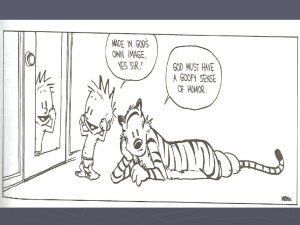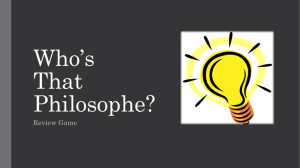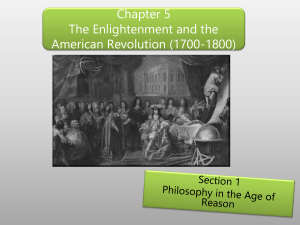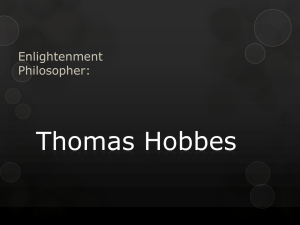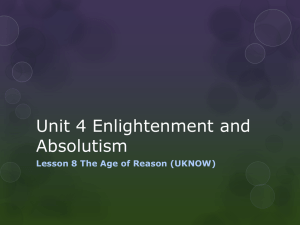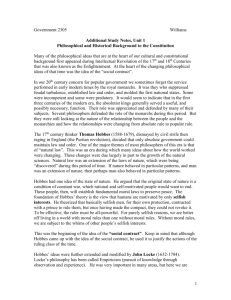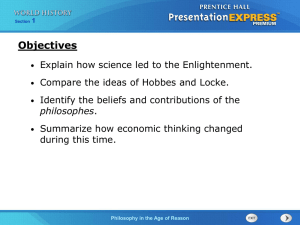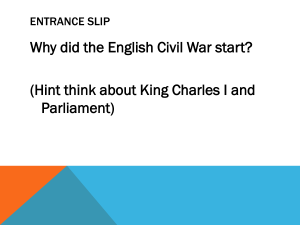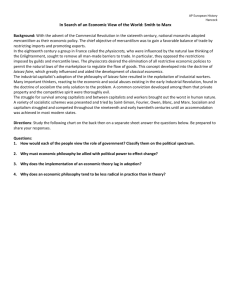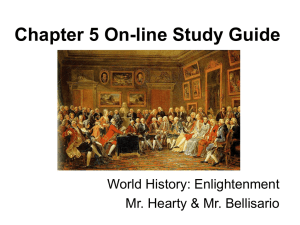5-1 Powerpoint - McCook Public Schools
advertisement
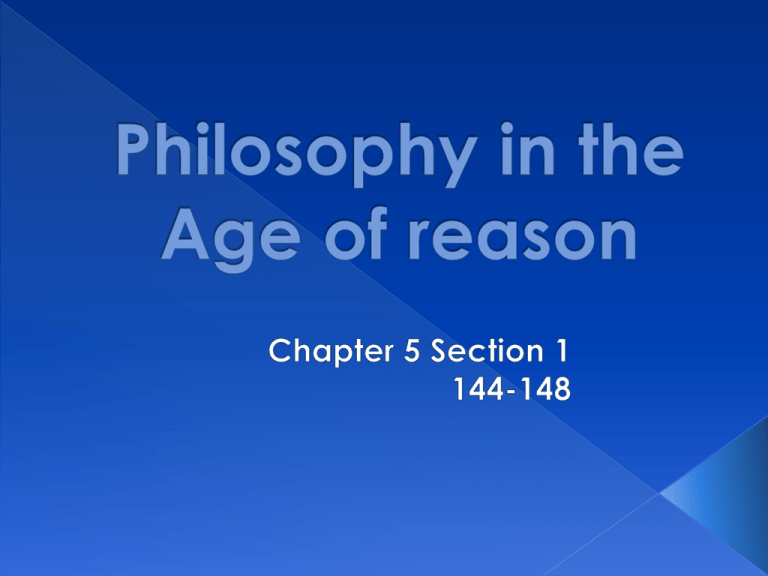
1500s-1600s, Europe started to look at the world differently. 1700s, scientists expanded European knowledge. › Joseph Jenner and Antoine Lavoisier built the framework for Chemistry. › Edward Jenner developed vaccine for smallpox. Used reason to discover natural laws. (laws that govern This Scientific Revolution led to what is known as the Enlightenment. human nature) › Enlightenment thinkers thought that through reason people & governments could solve every social, political, and economic problem. Thomas Hobbes › Expressed his ideas in a work called Leviathan. In it he argued that people are naturally cruel, greedy, and selfish. Without control they would fight, rob and oppress each other. Life without laws would be solitary, poor, nasty, and brutish. › To escape this “brutish life” people entered into a social contract (agreement). In which they gave up the “state of nature” for an organized society. › Believed only powerful governments could ensure orderly society. He wanted an absolute monarchy. John Locke › Believed people were reasonable and moral. › Thought people have natural rights (rights that belong to all humans at birth). Included Life, Liberty, and the Property. › In Two Treaties of Government, Locke argued that people formed governments to protect their natural rights. (He preferred limited power forms of government). › He said the government has an obligation to the people it governs. If government fails its obligations then people have the right to overthrow it. › These ideas later spread across the world. 1700s France › An influential thinker was Baron de Montesquieu. Studied governments of Europe. Studied European, Chinese and Native American cultures. › He criticized absolute monarchy. › In 1748, he published The Spirit of the Laws. In it he wrote about governments throughout history. Wrote admiringly about Britain's limited monarchy. Liked the idea of separation of power in government. Also liked “checks and balances”. Separation of power, shares the power between different areas or branches of government. › The power of one branch can always be challenged by another branch. › This way each branch has an effect on the others. › No one branch of government can get to much power. Using the checks and balances system helps to balance the power of the government. In France, Philosophes applied methods of science to better understand and improve society. › Thought use of reason could lead to reforms of government, law, and society. Their ideas spread across Europe and to other continents. One famous philosophe was Francois-Marie Arouet. › He later took the name Voltaire. › He said, “My trade is to say what I think.” › Used his intelligence to expose the abuses of his day. He liked to target corrupt officials and idle aristocrats He detested the slave trade and deplored religious prejudice. › Voltaire’s outspoken attacks offended the French government and the Catholic Church. He was later imprisoned and then exiled. Always continued to defend “Freedom of Speech”. Denis Diderot › Produced a 28-volume encyclopedia. › His purpose was to change the general way of thinking. In it he denounced slavery, praised freedom of expression, and encouraged education. Attacked divine right and traditional religions. › Pope threatened to excommunicate all those who bought or read any of the encyclopedia volumes. › Between 1751 and 1789, 20,000 copies were printed. › Helped spread Enlightenment throughout Europe and to the Americas. Jean-Jacques Rousseau was a philosophe. › He believed people were naturally good. › Felt like this “good” was corrupted by society. › In 1762, set forth his ideas in “The Social Contract”. › He put his faith in “general will” or the best conscience of the people. › Felt like the individual should be subordinate to the community. › His work has influenced people for over 200 years. Women didn’t have as much freedom as men. Did have natural rights, but were limited to areas of the home and family. Mid-1700s, some women began to protest this. › They questioned the notion that women were by nature inferior to men. Mary Wollstonecraft › She accepted that women’s first duty was to be a mother. › Felt like women should be able to decide what is in her own interest and have some independence. › Published “A Vindication of the Rights of Woman”. In it she called for equal education for men and women. Physiocrats focused on economic reforms. › They rejected mercantilism which required government regulation of the economy. Laissez Faire was a policy that allowed businesses to operate with little government involvement. › Physiocrats approved of this policy. Mercantilists believed in in acquiring gold and silver wealth through trade. Physiocrats believed that real wealth came from making the land more productive. British economist that greatly admired physiocrats. In his work, The Wealth of Nations, he said free market should be allowed to regulate business activity. He also believed in supply and demand methods. He strongly approved and supported Laissez Faire. › Still thought the government had a duty to protect society, administer justice, and provide public service. Smith’s ideas would greatly influence and help shape the productive economies in the 1800s and 1900s. Mary Shelley, the author of Frankenstein, was the daughter of what enlightened thinker, that worked for women’s rights during the 1700s? › Mary Wollstonecraft Who believed that the purpose of separation of powers was to protect the liberty of the people? Baron de Montesquieu Who wrote and was the editor of the controversial Encyclopedia? › Denis Diderot Which philosopher believed that people were basically good? › Jean-Jacques Rousseau What author wrote Leviathan, and believed in social contract, but once entered into that contract was absolute? › Thomas Hobbes Who wrote Two Treatises of Government, and believed in social contract, but that contract could be broken? › John Locke Frenchman Francois-Marie Arouet, who exposed abuses of government and detested the slave trade, was better known as: › Voltaire Who was the British woman that thought women should be free to choose and that girls and boys should be educated? › Mary Wollstonecraft What book did Adam Smith write that said a free market should be allowed to regulate business? › The Wealth of Nations Hands Off, or a policy that allows businesses to operate without government interference is called: › Laissez Faire When people agree to give up their natural state for an organized government, they are said to have entered into a what? › Social Contract What were “Lovers of Wisdom” called that used reason to lead to reforms of government, law, and society? › Philosophes A what believed that natural laws could be used to define economic systems? › Physiocrats Life, liberty, and property are examples of what? › Natural Rights According to Hobbes and Locke, human nature was governed by what? › Natural laws This person wrote Spirit of Law and came up with the idea of three branches of government: › Baron de Montesquieu http://www.usconstitution.net/consttop_cnb.html http://www.congressforkids.net/Constitution_checksandbalances.htm http://www.factmonster.com/ipka/A0777009.html
